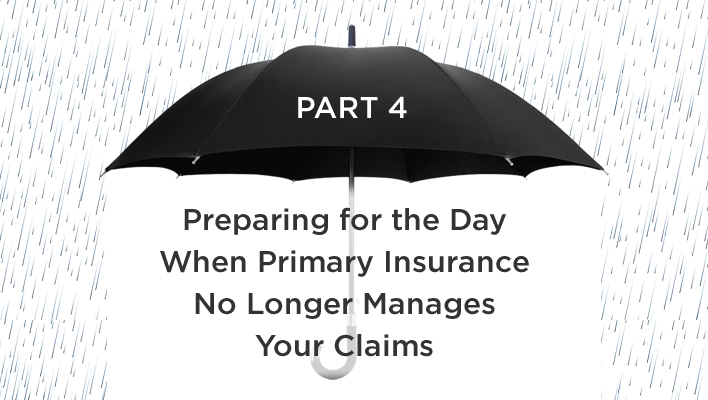

Once primary coverage exhausts, everything will continue to work as efficiently as it did when your carrier was controlling and managing your defense, right? Not necessarily. If you’re not invested in all the workings of the local counsel network, there may be parts of the process that you aren’t currently aware of, or prepared to handle once your carrier is no longer in the picture.
In Part 3 of this series, we discussed documentation — activities you should be tracking. In this installment, we look at exactly what will be handed off to you to control once primary exhausts:
Up to this point, the local counsel network has likely been answering to and directed by an insurance carrier. The carrier is the one who selects the counsel, approves the fee rates counsel can bill, and approves/authorizes settlements. If you’ve not had much hand in these conversations, there may be more effort involved in getting to know the counsel network. This is also the time to review the processes and procedures in place, and make sure counsel is providing the documentation you need for all cases — since more than one carrier now is likely involved, and each may have different requests and requirements.
The review and approval of defense invoices is imperative to the defense process. Now that you are managing the cases, you’re responsible for reviewing and verifying that only appropriate fees and costs are billed. When multiple carriers are involved, you may also have others doing reviews of time entry. If you have straight-forward rules for billings, there are software or third-party vendors that can be useful for the review of defense invoices. However, it’s wise to perform manual spot checks, as well, to ensure compliance.
Do you know what documentation you need to satisfy your settlement needs? Is defense counsel preparing this for you? Are you covering your requirements with Medicare reporting in your settlement documentation? These are just some of the issues you need to consider when taking over the settlement process. Other things to research are acceptable settlement values and risk considerations for trial versus settlement.
Having good reporting on various statistics about your claims history can be vastly helpful as you begin managing your entire defense network and process. Valuable information includes claim filing rates, locations of filings, and average settlement values by disease. Reports can also help you identify comparative counsel rates by title, as well as the amount of time spent by each title level being billed on your invoices. Often, having your data in a robust, query-able database will help with these needs.
Preparing for these items in advance of the “hand off” will go a long way toward maintaining an efficient process, so that everything keeps moving forward after coverage exhausts. What have you found helpful as you anticipate the day your primary carrier hands these activities off to you? Do you have any tips to share?
Never miss a post. Get Risky Business tips and insights delivered right to your inbox.

Carrie Scott is KCIC’s technology lead, both in operations/infrastructure and for development. “I work with a talented group of people to make sure our technology stays innovative and top of the line to support our client’s needs,” she says. “I also focus on the Consulting side of our practice, leading many clients through their day-to-day and long-term strategic goals.”
Learn More About Carrie